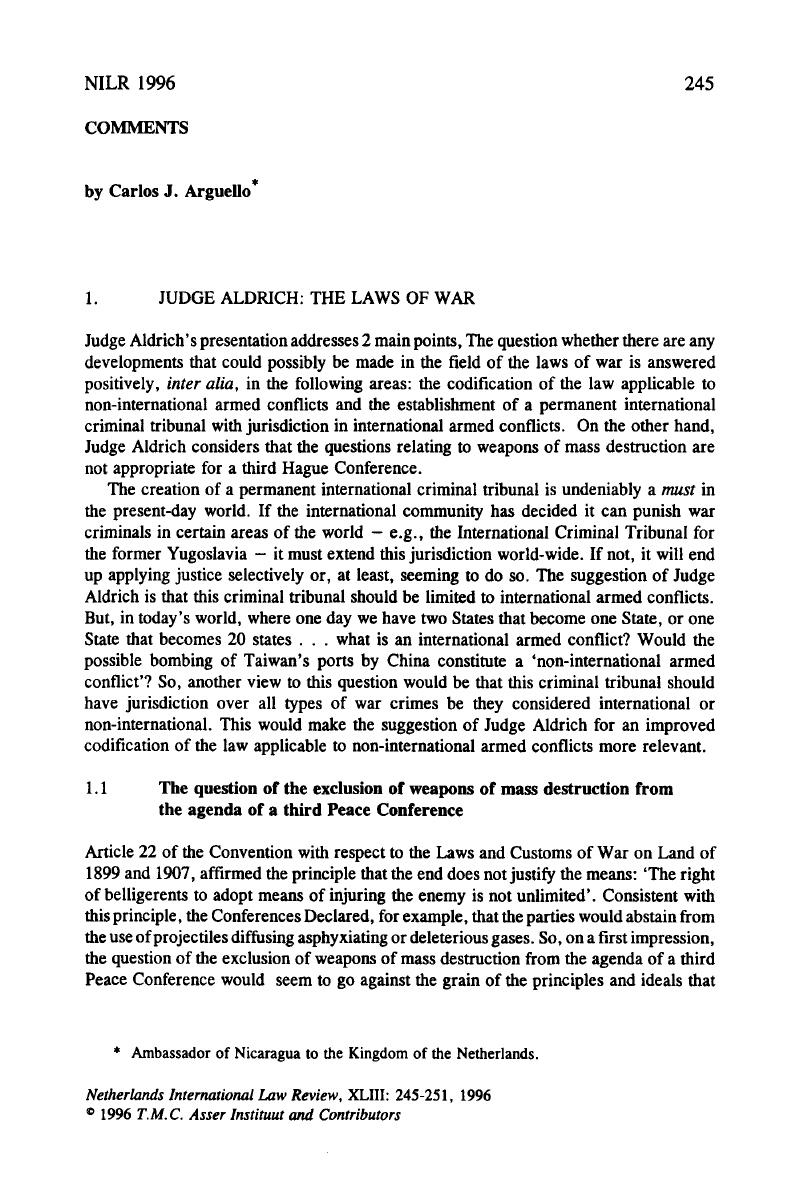No CrossRef data available.

Ambassador of Nicaragua to the Kingdom of the Netherlands.
1. 82 ASIL Proc. 70 (1995) p. 359.Google Scholar
2. Ironically it was opposed in the Non-Aligned Movement, for example, by Cuba and from outside the Movement, by the United States.
3. Art. 92 of the UN Charter.
4. Paraphrase from the Preamble of the Convention with respect to the Laws and Customs of War on Land of 1899 and 1907.
5. Bedjaoui, M., The New World Order and the Security Council (1994) p. 127Google Scholar.
6. See, for example, Shiffman, B., ‘The Permanent Court of Arbitration: Recent Developments’, 8 Leiden JIL (1995) p. 193Google Scholar.
7. Op. cit. n. 5, p. 102.
8. Schwarzenberger, G., Power Politics. A Study of World Society (1964).Google Scholar
9. When referring to Power Politics Schwarzenberger distinguished ‘open’ power politics, as exercised in pre-1914 societies, and what he called power politics in ‘disguise’, as exercised particularly during the life of the UN Charter. For a short note see Schwarzenberger, G., International Law, Vol. IV (1957) p. 819Google Scholar.
10. Art. 27 of the Charter.